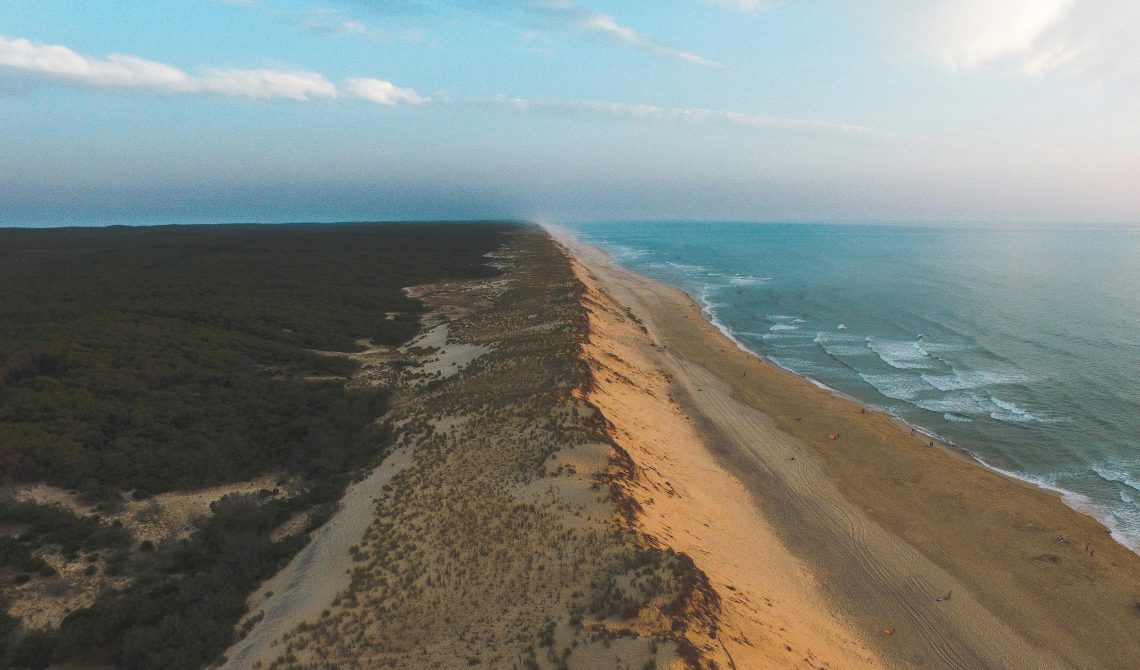Coasts are highly dynamic and multifunctional border areas between land and sea. According to the United Nations, more than a third of the world’s population lives less than 100 km from the nearest coast. They fulfill crucial functions for nature and humans and are experiencing rapid and clearly noticeable changes and threats as a result of climate change and their increasing anthropogenic “valorization”.
In the 2024 summer semester, oceans and coasts will be a focus of Heidelberg Geography.
Prof. Dr. Olaf Bubenzer
Rising sea levels – global impacts & local responses
Tuesday, May 21, 2024, 7:15 p.m., Prof. Athanasios Vafeidis (Kiel University)
Rising sea levels constitute a significant threat for coastal areas as they can exacerbate the impacts of coastal hazards such as storm surges and coastal erosion. Although mitigation is essential for reducing the rate of sea-level rise (SLR), adaptation will be necessary as sea level is expected to continue rising for centuries, even under drastic emission reductions. Meanwhile, socio-economic development in coastal regions far exceeds inland development, thus leading to increasing risk along the world’s coastal regions. The extent of potential impacts will be significant, but uncertainties related to the rate and total amount of SLR as well as to how coastal societies will respond, pose difficulties in their assessment. We present the results of studies at different scales, global to local; critically evaluate the results and associated limitations and uncertainties; and discuss how these findings can assist adaptation planning and decision making.
Dream ships? Risks and resilience strategies in the globalized cruise industry
Tuesday, June 04, 2024, 7:15 p.m., Dr. Thomas Neise (University of Heidelberg)
The global cruise industry has been experiencing above-average growth for years. However, only a few powerful cruise companies from the USA and Europe are benefiting from this boom, while at the same time outsourcing ecological, social and economic risks. This lecture will discuss current and future risks in the cruise industry. Particular attention will be paid to the situation of workers in the Global South. The Covid-19 pandemic demonstrated how cruise companies transfer risks to workers from the Global South. Using the example of Indonesian workers, their risk management is therefore demonstrated by applying various resilience strategies that serve to mitigate the threat to their livelihoods. The lecture thus illustrates that due to the spatial-organizational characteristics of globalized industries, risk production and the necessary risk management take place in different places (the lecture will be conducted in German).
Joint lecture with the Working Group Oceans and Coasts. Adaptation, mitigation, biodiversity
Thursday, June 13, 2024, 6:00 pm | New University Lecture Hall 07, Dr. Maike Paul (Leibniz Universität Hannover)
Climate change is having a massive impact on coastal areas, as the dynamics of the coastal system are changing and existing coastal protection measures will not remain effective in the long term. In addition, the coast is also affected by global biodiversity loss, which is exacerbated by climate change effects such as rising sea levels. One strategy to meet these challenges in coastal areas is to strengthen ecosystems such as seagrass beds and salt marshes. By dampening waves, stabilizing sediment and growing with the sea level, they can help to adapt coastal protection to future needs. They also store large amounts of carbon, which is key to mitigating climate change, and their conservation promotes biodiversity. Against this background, we are trying to understand what the stability and performance of salt marshes on the German North Sea coast depends on and what we can do to support their development (the lecture will be conducted in German).
Coasts, karst, cultures – searching for clues in ancient Greece with the Meteor
Tuesday, July 16, 2024, 7:15 p.m., Prof. Dr. Ingmar Unkel (University of Heidelberg)
Greece, birthplace of European civilizations, home of the mythical kings Minos and Agamemnon, site of numerous naval battles from Salamis to Navarino. For thousands of years, people have lived there in close contact with the sea. But to what extent have natural changes to the coastal landscape and climate fluctuations influenced the socio-cultural development of the region? How much and when did people themselves influence and change their environment? Prof. Ingmar Unkel is investigating these and similar questions on the Peloponnese and together with his colleagues working on the research vessel Meteor. In this lecture, he will attempt to provide answers to some of these questions (the lecture will be conducted in German).
Unless stated otherwise, all lectures take place in the “Kleiner Hörsaal” lecture hall (H2) at the “Kirchhoff-Institut für Physik (KIP)” (Address: Im Neuenheimer Feld, Building INF 227, Heidelberg)
You can find further information here.

